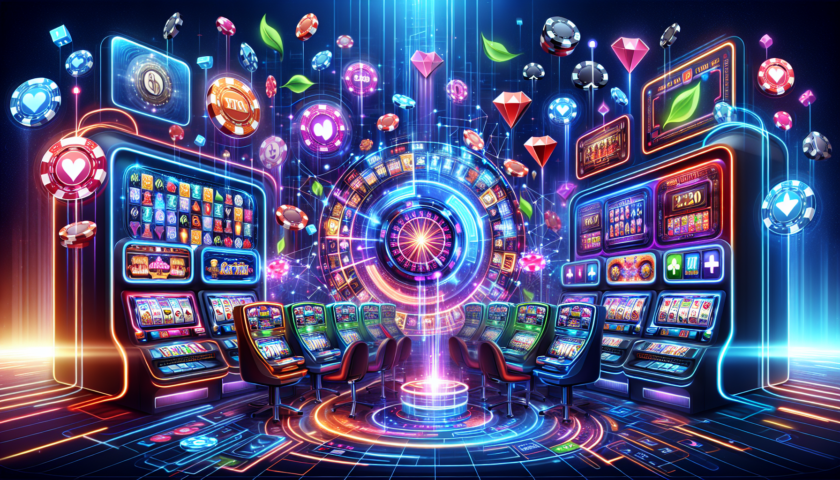Online gaming platforms have evolved from simple web-based games to complex, interactive universes that offer a variety of experiences. With millions of players worldwide, these platforms provide more than just entertainment; they serve as communities, social spaces, and creative outlets Hoki805. As technology advances, the next generation of online gaming platforms is set to revolutionize the way we play, connect, and create.
In this article, we explore the unique and emerging trends shaping online gaming platforms, including immersive virtual reality (VR) and augmented reality (AR) experiences, the integration of Web3 technologies, and the growing influence of artificial intelligence (AI) in gaming.
1. Immersive Virtual Reality and Augmented Reality
Virtual Reality (VR) and Augmented Reality (AR) are set to be the game-changers for online gaming platforms. VR allows players to step into entirely new worlds, offering a more immersive experience where players can physically interact with their environment. On the other hand, AR blends digital elements with the real world, enabling gamers to interact with virtual objects overlaid on their surroundings.
The Rise of VR Gaming Platforms:
As VR headsets become more affordable and powerful, platforms like Oculus, PlayStation VR, and HTC Vive are allowing players to dive deeper into gaming worlds. Titles such as Half-Life: Alyx and Beat Saber have already set a high standard for VR gameplay. However, the future of VR gaming is expected to be more socially interactive. Games designed for VR platforms are starting to integrate multiplayer features, allowing players to team up or compete in immersive environments.
AR Gaming on Online Platforms:
While AR gaming hasn’t fully realized its potential, mobile-based games like Pokémon Go have shown the possibilities of blending gaming with real-world locations. Looking ahead, we can expect AR-based games to expand into online platforms, where players can interact with both virtual and physical spaces simultaneously. In a connected world, this could mean real-time battles, treasure hunts, or collaborative events that take place in local neighborhoods, towns, or even cities.
2. Web3 and Blockchain Integration
The rise of Web3, which promotes decentralized and user-owned digital experiences, has found its way into online gaming. By incorporating blockchain technology into gaming platforms, developers can create environments where players own in-game assets, such as skins, characters, and items, and even trade or sell them in the form of Non-Fungible Tokens (NFTs).
Blockchain-Based Games:
Online platforms like Decentraland, The Sandbox, and Axie Infinity are already pioneers in integrating blockchain into their gaming ecosystems. In these worlds, players can own virtual land, craft digital objects, and trade assets, all while receiving rewards that have real-world monetary value. This approach shifts the dynamics of online gaming by providing players with more control over their assets and even offering new revenue models for developers.
Web3 and NFTs in Gaming:
NFTs are transforming how in-game items and achievements are perceived. Players can now own unique skins, avatars, and even entire game worlds, providing a sense of true ownership and personalization. Future online gaming platforms will likely leverage these technologies to allow players to buy, sell, and trade their in-game assets, creating entire economies within gaming ecosystems. Furthermore, the integration of decentralized finance (DeFi) could allow players to earn passive income through their in-game assets.
3. AI-Powered Gaming
Artificial Intelligence (AI) is becoming an integral part of modern online gaming platforms. AI is being used to create more sophisticated NPCs (non-player characters), tailor gameplay experiences, and optimize matchmaking systems. It can also help create dynamic, ever-evolving game worlds that adapt to the player’s decisions, making each experience unique.
AI-Driven Personalization:
Online gaming platforms are increasingly utilizing AI to analyze players’ habits and preferences. This data is used to personalize the gaming experience, from recommending new titles to adapting in-game challenges to suit the skill level of players. AI can help create more engaging environments by responding to player actions in real-time, ensuring no two gameplay sessions are alike.
